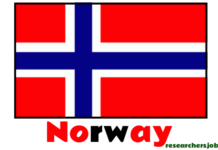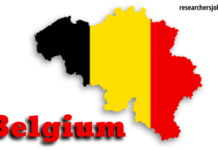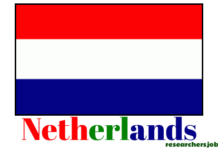PhD Researcher – Microplastic: Wageningen University and Research are offering a fully-funded PhD position for a highly motivated candidate to study microplastic-sediment aggregation. The project aims to enhance understanding and modeling of the interaction between microplastics and sediment transport in aquatic environments. The successful candidate will engage in lab experiments, field measurements, and numerical modeling to contribute to solving the global ‘plastic problem.’
| Title | PhD Researcher: Microplastic-Sediment Aggregation |
|---|---|
| Summary | Wageningen University and Research seek a motivated PhD candidate to study microplastic-sediment aggregation. This fully-funded position involves lab experiments, field measurements, and numerical modeling to address the environmental impact of microplastics. |
| Study Area | Environmental Sciences, Hydrology, Civil Engineering, Earth Sciences |
| Scholarship Description | Investigate the process of microplastic-sediment aggregation and its influence on the aquatic ecosystem. Conduct lab experiments, in-situ measurements, and numerical modeling. Contribute to understanding and modeling microplastic-sediment interactions. |
| Eligibility | Master’s degree or equivalent in Environmental Sciences, Hydrology, Engineering, Physics, or related fields. Strong interest in microplastic research, environmental modeling, and laboratory experiments. Proficiency in scientific programming. |
| Required Documents | Letter of motivation (max. two pages) and academic CV. Mention the preferred project in the application. |
| How to Apply | Apply directly using the “apply” button on the vacancy page. Submit a letter of motivation and academic CV, specifying the chosen project. |
| Last Date | Application deadline: January 8, 2024. First interviews scheduled for calendar week 3 or 4, 2024. Preferred starting date: March 2024. |
Eligibility: The ideal candidate should hold a Master’s degree or equivalent in Environmental Sciences, Hydrology, Engineering, Physics, or related fields. Strong interest and experience in microplastic research, environmental modeling, and laboratory experiments are essential. Proficiency in scientific programming (MATLAB, Python, or R) is preferred. Excellent communication and teamwork skills are crucial.
How to Apply: Interested candidates should apply directly using the “apply” button on the vacancy page. The application must include a letter of motivation (max. two pages) and an academic CV. Specify the preferred project in the application.
Last Date: The application deadline is January 8, 2024. The first job interviews are expected in calendar week 3 or 4, 2024. The preferred starting date for the position is March 2024 or soon after that date.
Seize this opportunity to contribute to cutting-edge research in environmental plastic pollution and make a positive impact on our water ecosystems. Apply before the deadline to be part of this exciting research project.









